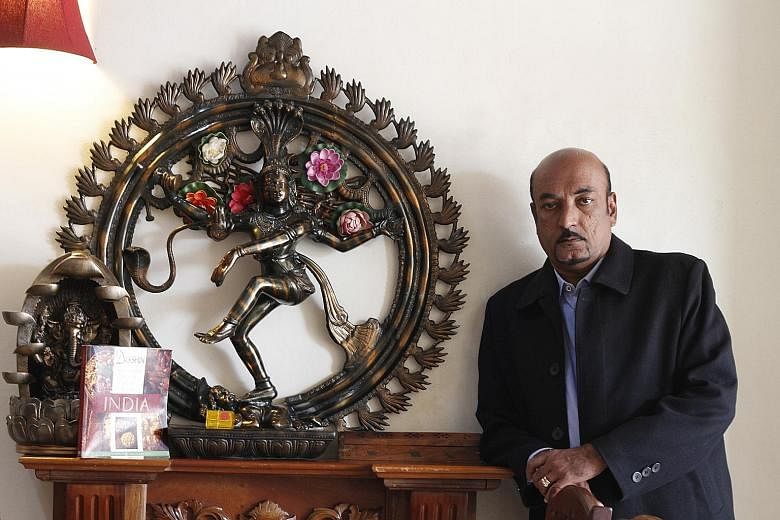When Mr B. Pannirselvam left Singapore for Cambodia in 1999, it was to help out a friend whose Peranakan restaurant in the capital of Phnom Penh was failing.
Thirsty for new challenges, Mr Pannirselvam, who was then managing a restaurant here, saw it as a chance to strike out on his own.
He bought the eatery and, within a year, had turned it into a bustling Indian restaurant, which he later sold for a profit, sinking the funds into a new venture.
The East India Curry Restaurant that he set up drew throngs of tourists, locals and dignitaries.
Mr Pannirselvam, 54, says: "I saw a growing need for a good Indian restaurant, especially for higher-end clients such as those from embassies and the United Nations... I wanted authenticity and great ambience."
The shortage of such options gave him a way in, so Singapore businesses should take the plunge early to seize the many opportunities presented by Cambodia's budding economy, he notes.
And costs, he adds, are still low.
Setting up East India Curry came to just over US$40,000 (S$56,000), and the rental was US$600 a month, a fraction of what he would have paid in Singapore.
The restaurant became so popular that, in 2012, a Malaysian regular offered to buy it. Mr Pannirselvam sold it for US$70,000 - and poured the money into launching Dakshin's, a new Indian restaurant in Siem Reap, famous as a base from which to tour Angkor Wat.
President Tony Tan Keng Yam, on a state visit to Cambodia and Laos in January, urged Singapore businesses to venture early into these developing markets.
Their economies have been growing at a rapid 7 per cent a year in recent years, and their leaders have encouraged Singapore to increase trade and investments.
-
Tips
-
... FROM IE SINGAPORE
• Consider working with a local partner. They can share knowledge of the local customs and regulations as well as their network.
• The younger generation of Cambodian business owners are more global in their mindset and welcome working with foreign companies.
• Given the small market size and dynamic landscape, privately held SMEs tend to be nimbler in navigating the market.
• Tourism will be the next growth sector other than agriculture and manufacturing, with a new international airport to be built in Siem Reap. Opportunities for Singapore companies include vocational training.
In 2015, Singapore was Cambodia's eighth-largest trading partner, and its third-largest investor, with about US$100 million in approved investments.
Singapore companies have made their mark there in real estate, finance, energy and logistics. Agriculture and property company HLH Group is developing affordable quality housing in Sihanoukville, and solar company Sunseap Group will roll out a large-scale solar farm project in Svay Rieng province.
Singapore was also an early believer in Siem Reap's potential as a hub for visitors to Cambodia, and supported greater air connectivity to open up the resort town.
Today, there are more than 40 weekly flights linking Singapore to Siem Reap and Phnom Penh.
Siem Reap's burgeoning appeal as a tourist destination has sent a steady stream of customers Dakshin's way. But it was not all smooth sailing, recalls Mr Pannirselvam. When he started out, Cambodia was foreign territory.
He had to familiarise himself with the new market and its regulations, and sort out logistical challenges such as sourcing top-grade Indian spices - an issue eventually resolved by Singapore food and beverage supplier LSH Cambodia.
Mr Pannirselvam, who has 12 Cambodian staff and five chefs from India, also looks for ways to give back to the community. He hands out food vouchers to raise funds for the needy, and delivers bags of rice to orphanages.
"Cambodia is a totally different market from Singapore, so you need to understand its culture, and show that you want to improve the life of the locals too," he says.


